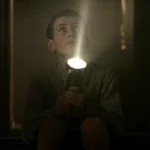At the end of a fantastic year for cinema, these are the films that defined ours. While most of the films listed had their UK cinematic releases during 2023, there are also a few classics that had their anniversary this year, as well a couple film festival gems that we’re excited for you all to see when they hit the screens (big and small) next year. Let us know what your favourite 2023 release was in the comments, and here’s to another year of watching films and talking/writing about them as a society!
Spider-Man: Across the Spider-Verse, dir. Joaquim Dos Santos, Kemp Powers and Justin K. Thompson — Sophiya Sian (Co- Editor-in-Chief)
Animation and family film – two genres we can be quick to dismiss in favour of the good old grown up theatrics of dolls and soldiers. Across the Spider-Verse is a multidimensional trip that polishes up all our spidey senses, from Gorillaz inspired graphics to a vertigo-inducing score, we find ourselves inside a love letter to creativity and the blank pages that threaten it. The Spot, (at least when I was watching it at a moment of personal creative turbulence) seems to personify the menace that is the blank page.
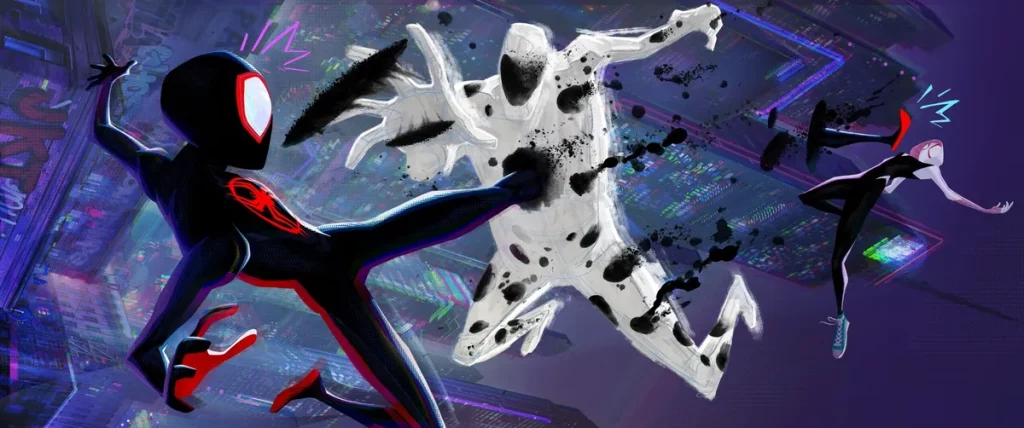
An erased outline of a body made of ink-splat voids, easily mistaken for some sort of Y2k Dalmatian-print leotard as Miles Morales cheekily notes, he is the villain archetype of the powerful nothingness that has been slowly conquering our stories over the years. A society is best understood through the elected villains of its time and the Spot, like the doughnut void of nihilism in Everything Everywhere All at Once and Miles’ quest against a life determined by infamous ‘canon events’, are perfect examples of the anxieties we bring to the cinema as audience members. The Phil Lord/Chris Miller writer combo made their Lego Movie no exception with its anti-instruction manual agenda, playful creation was in the plastic heart of each of its 4cm high protagonists. Combining the Lord/Miller’s fizzing meta-humour with the existential sensitivity mastered by Spider-Verse Co-Director Kemp Powers in Pixar’s Soul, we are left with little choice but to swap out our grown up anxieties for an innocent and joyous awe.
The sheer passion and commitment to celebrating creative possibility is infectious, and whilst the zigzag plot may result in a little whiplash, Hobie, the Miles family and the rest of the Spiderman cohort deliver characters richer than many of Marvel’s live action counterparts. A must watch for anyone in the need for a colourful reminder about what can be found on the other side of a blank page.
Hit Man, dir. Richard Linklater — Zheyuan Tony Yang (Co- Editor-in-Chief)
What’s not to love about Richard Linklater? Whether he’s telling stories about young lovers soaking up every moment of a fateful encounter, down-on-their-luck rock musicians whose love for the medium reach the hearts of even the most stubborn schoolchildren, or a Texan boy who finds a balance between dramatic hardships and mundane pleasures on his journey to adulthood, Linklater makes you feel for these human beings. His characters have big hearts and sharp minds, and the words they speak are reminiscent of your wittiest friend. They are people you enjoy being in the company of for 2 hours, and by the end of the film are left wishing they lingered a bit longer.
Of all the colourful characters whose lives I glimpsed into this year, there are none I would like to befriend more than Gary Johnson, the semi-fictionalized protagonist of Linklater’s new film Hit Man. Played by Top Gun: Maverick’s Glenn Powell with effortless charisma and astonishing charm, Gary is a university philosopher lecturer who ends up moonlighting as a fake hitman: the decoy sent by police to dupe dummies attempting to commit murder-for-hires into telling on themselves before real officers swoop in for the arrest. In the hands of another filmmaker, it’s easy to imagine this story manifesting as yet another meditation on the already thoroughly-explored cop/criminal dichotomy, or the ballad of a seasoned professional’s careless mistake that lands him in hot water with both sides of the law. (As in this year’s other fantastic film with a killer lead, David Fincher’s The Killer)

But Linklater turns one such confrontation between Gary and a would-be “victim” into a meet-cute: Boy meets girl, except girl is trying to get her estranged husband whacked and boy is obligated to turn her in. What ensues is 2 hours of good time, as we watch these unlikely lovebirds tango, witness the cinematic legacy of the hitman gently unfurl, and wonder whether all the building blocks of our identity are as malleable as clay. Some filmmakers simply get it, and they’re the ones who make bangers like this one.
Ferrari, dir. Michael Mann — Aryan Tauqeer (Workshop Producer)
In a year where Late Style in film was almost inextricable from the concerns of aging filmmakers with mortality and redemption of the irredeemable, from Scorsese to Petzold, no film embodied the funereal to more moving effect than Ferrari, which acts as both a chronicle of the turbulent summer of 1957 in Enzo Ferrari’s hometown of Modena and Michael Mann’s fulfilment of an obsession almost 30 years in the making. Not entirely unlike the filmmaker’s maniacal attention to detail and recreation of historical circumstance, Adam Driver’s rendition of the automobile mogul is a steely-eyed, almost vampiric perfectionist on the verge of personal and professional collapse, negotiating with both an industry that rests on the foundation of life and death and with the families of both his wife and mistress. Far from a conventional biopic, Mann’s late-period opus is a suitably elliptical examination of Ferrari’s founder as a reflection of the Italian postwar period, treating domestic spats with all the furious intensity of the high-speed car crashes that Enzo regards with cold indifference.
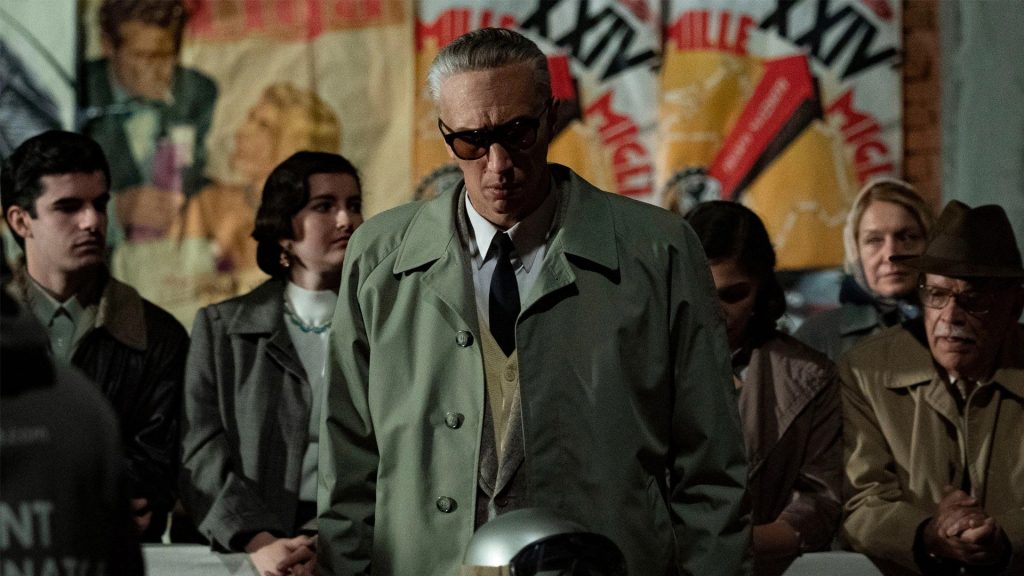
Irreconciliability between the personal and professional lives of driven, emotionally suppressed loners has always been key to the archetype of the Mann protagonist, but here, that dialectic takes on its most visceral form yet: that of racing as not mere sport or entertainment but as an artform that channels drives of sex and death into the altar of capital, as carnality and carnage, and as a discipline that drafts young men into a war on the racetrack (with all the blood, sweat and grime that entails) motivated by a deadly contradiction: two objects cannot exist at the same point in space at the same moment in time. It’s as operatic a melodrama as Mann has ever made, and one that signals not a capstone to an inimitable career but the beginning of a thrillingly new formal approach.
Stop Making Sense, dir. Jonathan Demme — Sammy Rowkins (Studio, Equipment & IT Manager)
Move over Taylor Swift, move over Beyoncé, there’s an old kid on the block! Whether you’re a Talking Heads fan or not, Stop Making Sense is undoubtedly the best concert film ever made. This year saw A24’s 4K re-release — and most essentially for me — the opportunity to watch the film in the theatres.
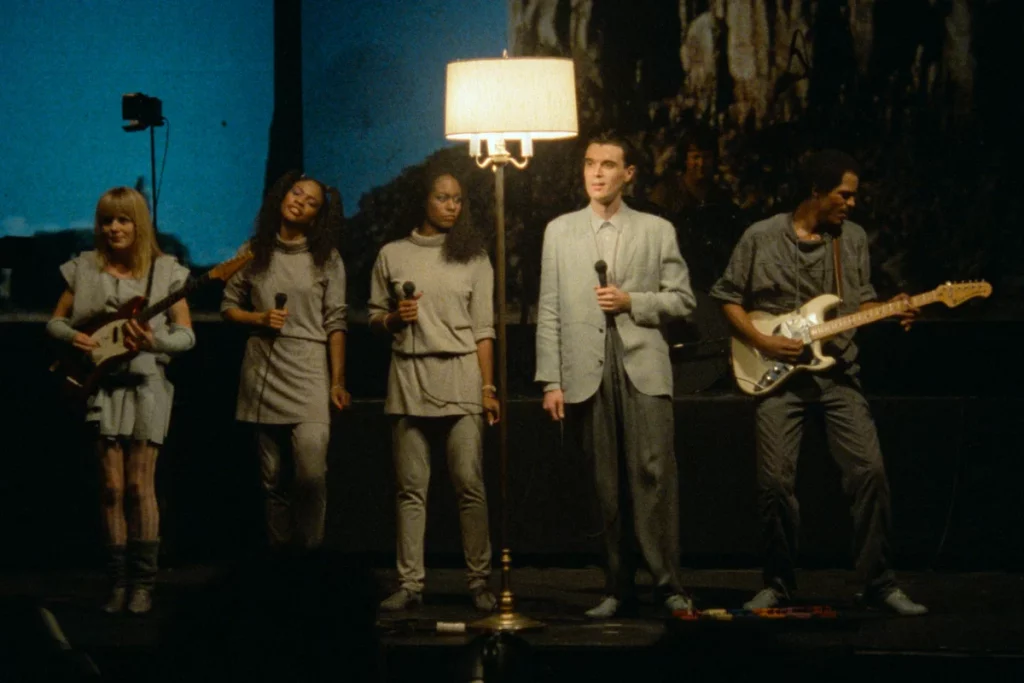
The magic of the film is truly in how Jonathan Demme (yeah, the Silence of the Lambs guy) captures the band’s energetic performance. The concert starts with just David Byrne alone on a bare stage with a guitar and boom box, and it builds and builds from that point, with another musician joining with each song. The film focuses purely on the band on stage which, especially when watching in a theatre, means you just can’t take your eyes off the magic Talking Heads are producing — and why on earth would you want to? Every performer puts in their all, and you can really tell that they are all having a great time. That’s what sets this film apart; it is bursting to the brim with fun and joy. David Bryne’s unfiltered performance; running, playing, and dancing around the stage is visual ecstasy. As a huge fan of Talking Heads (thanks to my initial watch of this film before its re-release), the opportunity to feel as though I was there back in 83’ is one I am very, very grateful of.
If you haven’t seen it already, I urge you to see it before the in-theatre opportunities run out. The Prince Charles Cinema still has a few screenings until late February!
Thanks! Does anybody have any questions?
Oppenheimer, dir. Christopher Nolan — Henry Bell (Studio, Equipment & IT Manager)
I am become Barbie, and I still wanna to party.
Oppenheimer was definitely a film to watch directly following my Margo-Robbie-filled morning at the Odeon. Despite this, it was an enjoyable spectacle – you should watch it but, maybe, just the once.
Beginning in the school days of our protagonist, J. Robert Oppenheimer, the plot accurately follows his personal and professional life through the advent of atomic physics and his involvement in constructing the world’s first nuclear weapon, culminating with its use and the consequences. Throughout, the story is intercut with monochrome flashes to a separate timeline, at first unexplained, the context of which unravels as we learn more from Oppenheimer’s life in a seamless and ultimately satisfying way. Nolan tells a complex and compelling story with some incredibly impressive visuals and an awesome soundtrack. It is clearly made with love and dedication and backed up by huge amounts of talent.
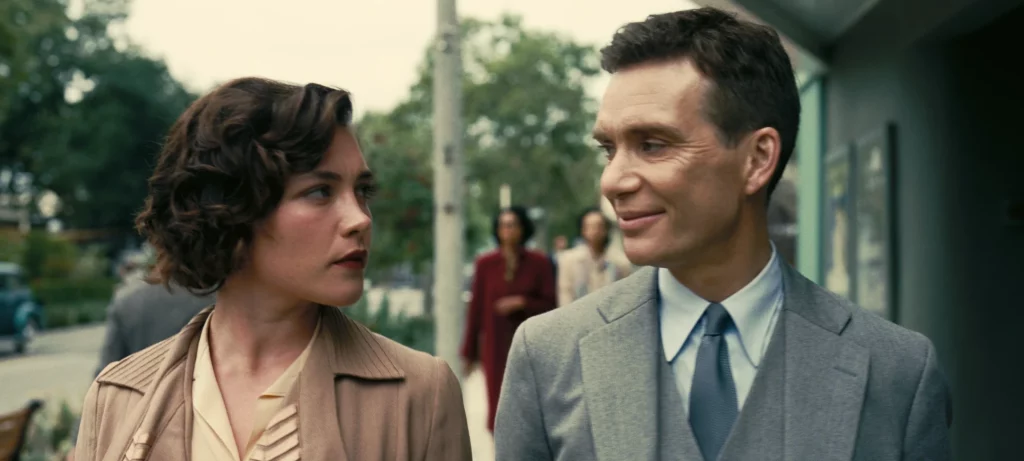
But what’s not to like?
In my Opp-inion, Oppenheimer is worth a watch once, in a Cinema, maybe even only in IMAX. It is definitely a spectacle, especially the trinity scene, but it is also long. I knew the story before going into the theatres (I study Physics), yet, at times I remember being lost during it. 20th century scientists are peppered in like superheroes in a Marvel movie and someone unfamiliar with the subject could easily be even more confused. Perhaps a rewatch would clear everything up, but without the tension of the first viewing and the awe of the theatre drawing me in, I don’t feel inspired to. If you haven’t, you should watch it for our boy Chris though, he was the best film soc SEIM.
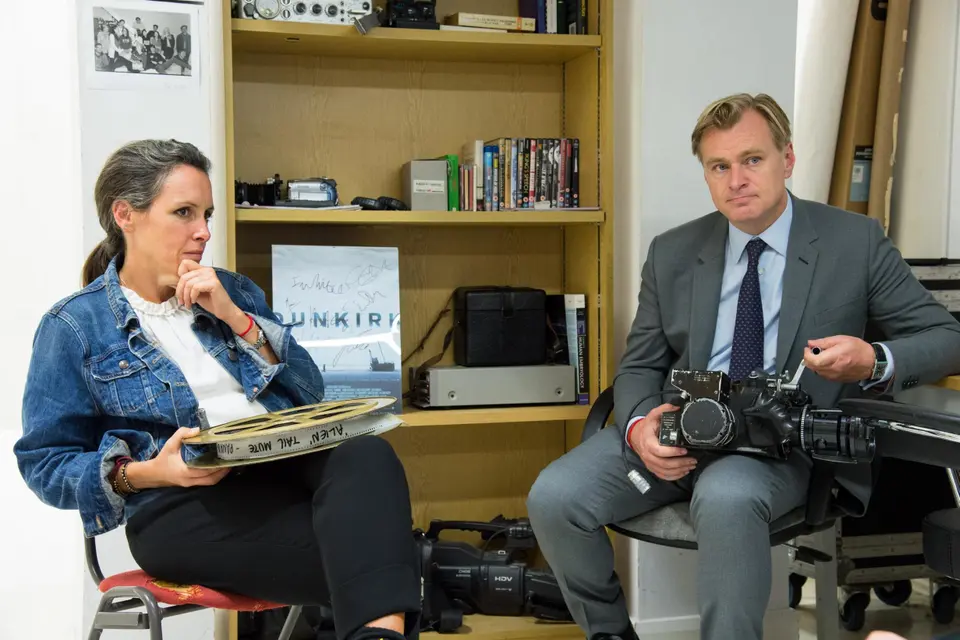
All of Us Strangers, dir. Andrew Haigh — Alexia Mihaila (Videography Officer)
All of Us Strangers swept the BIFAs and soon enough, from the comfort of your preferred cinema, will make you weep like a newborn. It’s not just a film: it tugs at your heartstrings, leaving you bare into an emotional whirlwind that lingers long after the credits roll.
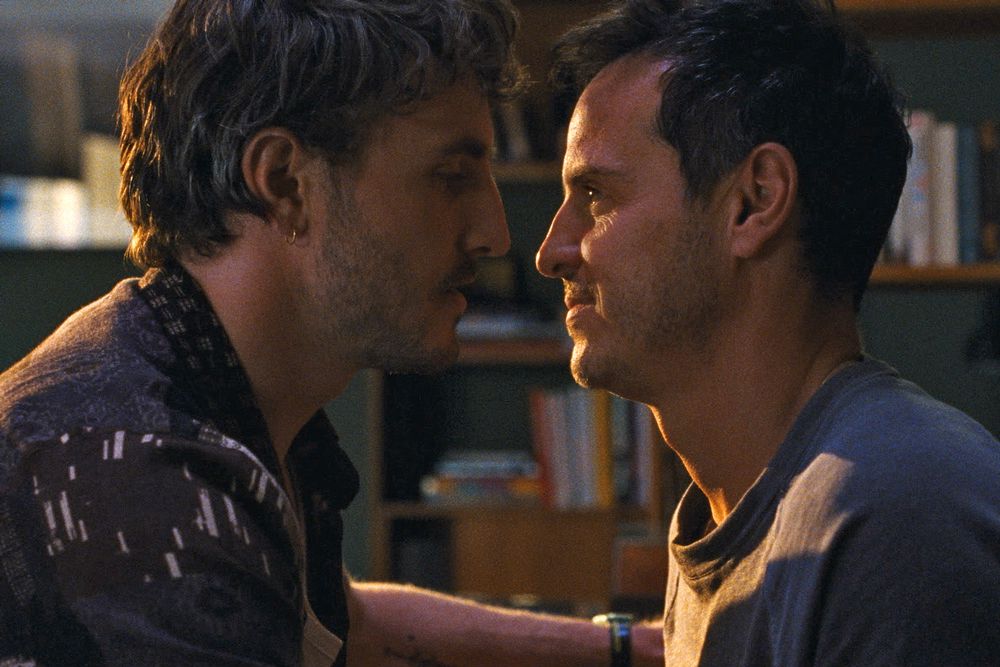
The film will be officially out on January 26th in the UK and, undoubtedly, you will cry. It’s a heart-wrenching tear-jerker, a visual therapy session for everyone having unresolved family troubles. For reference, it’s Céline Sciamma’s coming-of-age sci-fi hybrid Petite Maman (2021) for the older sad queers that roam nightclubs in search for love.
It won at BIFAs this year Best British Independent Film, Best Director, Best Screenplay, Best Music Supervision, and more. It’s one of those films you watch and then you need to rethink your whole life. I also couldn’t overlook the film’s score, which has been recycled in all of my playlists since my first screening. The soundtrack features iconic tracks like Blur’s ‘Death of A Party’ and Frankie Goes To Hollywood’s ‘Power Of Love’ which become a character of their own. The film stars Andrew Scott who leads the way as Adam, a lonely Londoner on a quest to come to terms with the relationship with his family, who in the process gets together with Paul Mescal’s golden-retriever character Harry.
I remember trying so hard at the press screening to hold back the tears, being in a room full of journalists, but a surrounding sobbing sound already echoed loudly through the theatre. Whilst I generally dismiss people suggesting bringing napkins for a film, for this one, they will truly come in handy.
Lost in Translation (2003), dir. Sofia Coppola — Barbara Kononova (President)
One of the most buzz worthy films showcased at this year’s Venice Film Festival is Priscilla, a compelling work by Sofia Coppola that vividly captures the narrative of 14-year-old Priscilla Presley falling under the charismatic spell of rock & roll icon Elvis Presley, who was 24 at the time of their initial encounter.
However, for my recommendation, I’d like to commemorate the 20th anniversary of Sofia Coppola’s sophomore feature Lost in Translation (2003). Forever releasing the filmmaker from the shadows of the famed Francis Ford Coppola, Lost in Translation remains a classic, intricately portraying alienation against the backdrop of melancholy.
The film centres on Charlotte (Scarlett Johansson), a twenty-something graduate navigating the bustling streets of Tokyo alongside her boyfriend, John (Giovanni Ribisi, playing an exaggerated reflection of Coppola’s former spouse, Spike Jonze), a renowned photographer in the throes of his career. Entrapped in John’s professional obligations and entangled with Kelly (Anna Faris), a lively yet somewhat superficial Hollywood actress with whom he shares a flirtatious liaison, Charlotte is left to traverse the vibrant city and the luxurious confines of the Park Hyatt Tokyo.

Haunted by the persistent spectres of jet lag, isolation, an overwhelming sense of loneliness, and an unsettling fear of the unknown future, Charlotte’s journey remains one of hope; of finding a friend in a stranger (or rather, a kindred spirit).
Within the opulent walls of the hotel, she serendipitously crosses paths with Bob Harris (Bill Murray), a faded film star engulfed in the desolation of shooting a $2 million advertisement for Suntory whiskey. Despite the stark age contrast—Johansson’s tender 17 years compared to Murray’s weathered 52—a profound and bittersweet connection blossoms between the two characters, a poignant echo destined to linger, even if some things might get lost in translation.
Maestro, dir. Bradley Cooper — Sam Prescott (Treasurer)
It was quite good, really. Emotional and everything, had it all. Nostalgic? Definitely. But well refined, modern and a perfect blend of old and new? Unquestionably. Emotion is the centre point throughout, with a wonderful mix of realism and expressionism, giving an organic and immersive experience. One of my other options for my favourite film of the year was Saltburn, but Maestro didn’t have someone doing inappropriate things to a grave, so I thought that (among other things) gave it the edge.
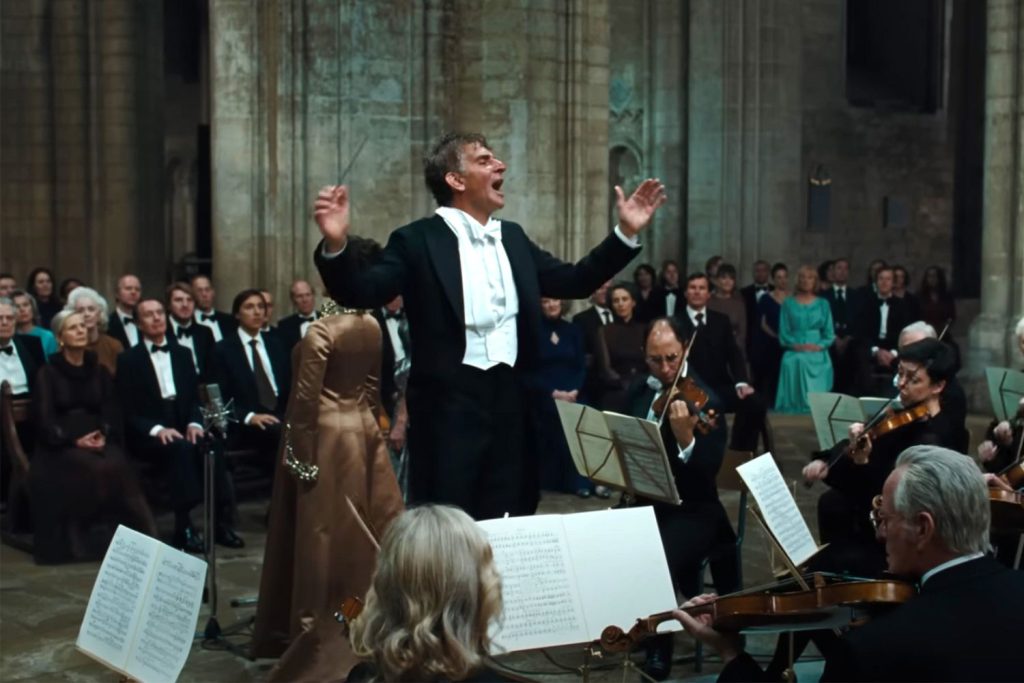
You can feel the enthusiasm and dedication of everybody involved through every aspect: from the performances to the production design, and in every single technical detail. I am rarely as fixated as I was during the one-shot of Cooper conducting the orchestra in Ely Cathedral (been there), seeing Bernstein’s glorious grave genius tearing everybody (including himself) apart (and making me tear up). It is a moment in cinema I am unlikely to forget, truly beautiful and heartbreaking. There is an authenticity in this film that captivates you, giving an organic character portrayal (I assume, speaking as somebody relatively unfamiliar with Bernstein), whilst being visually stunning in a way that only contributes to the film; I was left wondering how Cooper managed to flawlessly be young, middle-aged, and old in the space of two hours. This is a testament to how even though we can be immersed by digital de-aging (hello young Indiana Jones), the practical effects in the case of Maestro were just another level.
Even my dad didn’t fall asleep, which is the ultimate compliment that can be paid to a film.
Rather good film, I’d give it a perfect 5/7. You should watch it on the big screen with big speakers if you can, or from the comfort of Netflix on your laptop is better than not at all.
The Innocent / L’Innocent, dir. Louis Garrel — Pedro Tafur (Archive Officer)
We always have to be careful with French movies.
At first, Louis Garrel’s The Innocent may seem like another French comedy that might get a foreign language adaptation here and there, but will not last very long after we’ve walked out of the cinemas. That’s before we meet Sylvie (Anouk Grinberg) a charismatic fifty-year-old actress engaged with a recent convict, Michel (Roschdy Zem), who will soon become the nightmare of Sylvie’s son Abel (Louis Garrell) as he tries to investigate the true intentions of his new father-in-law. The strength of these characters and their hilarious interactions makes you fall for their unlikely dramas in which love and crime go hand in hand.
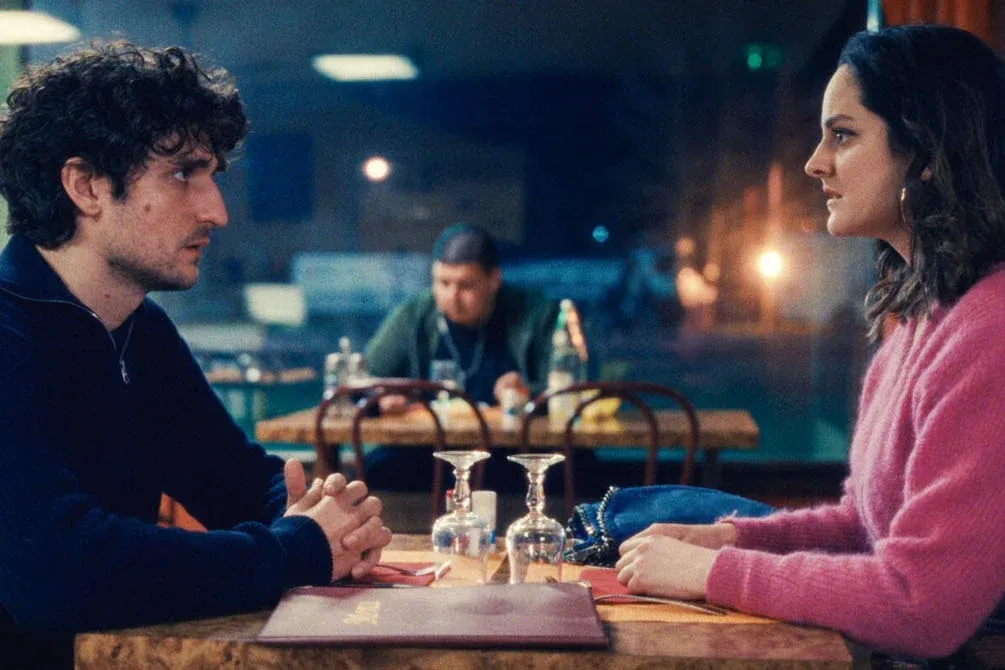
As Abel tries to be a parent to his mother, Michel and his charming best friend Clémence (Noémie Merlant) try to show him that taking risks and falling in love is the only way to get around life. The story is simple, but its humour isn’t. At its best, it shows how the French can be hilarious when they don’t take themselves too seriously and make good use of their clever irony.
With French disco playing over a hazy Lyon and some brilliant dialogue performed by equally fantastic actors, there is hardly any moment of the film in which you don’t find yourself amused or entertained.
After a decade in which France struggled to combine a high production of entertaining comedies with their tradition of auteur’s films, it seems like French cinema is entering a new phase, in which Louis Garrel and Noémie Merlan are a few of the names to keep an eye on.
‘Leave the world behind, dir. Sam Esmail — Charlie Quashie-McDonald (Drama Producer)
In this Sam Esmail- Obama collaboration, I’m desperate to know whose idea it was to have a shitload of psycho deer. Leave the world behind is a psychological thriller where we see a terrifying insight into our over reliance on technology, how urban warfare takes its form and many other political and societal comments- and yet the scariest thing is the deer.
I want everyone to watch the film, just so you can tell me what you think is going on with those things. Because if the people and governments in the world are going mad…why are the deer in on the fight. What did we do to them? Does Obama know something about the deer that we don’t? Is it just the deer in New York, or do we have to be wary here in the UK too? (There are 2 million deer in this country, FYI.)
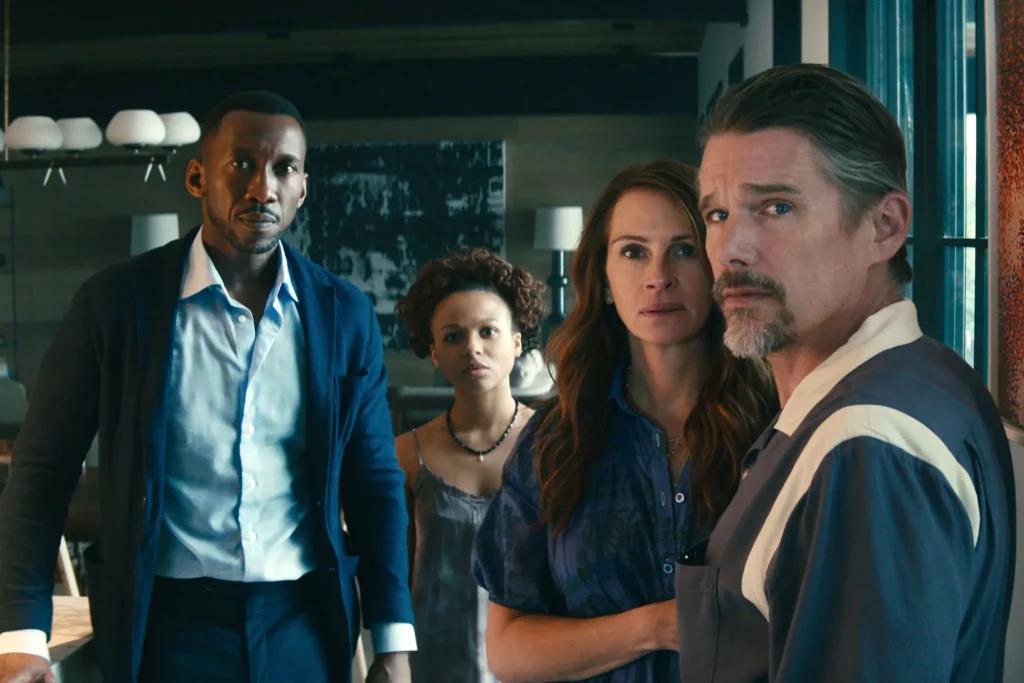
This film was not only entertaining and a unique concept for a thriller, but the main excitement came from the questions it raised. (I’ve discussed the deer ad nauseam) When the former President produces a film about a giant conspiracy, you tend to ask some questions about what he’s implying. It’s enjoyable for those who both love or hate thrillers as there are no major jump scares — don’t worry those of you who tend not to watch thrillers — and it’s the sinister tone of the acting, cinematography and dialogue that lends itself to the thriller genre.
While leave the world behind is not a complex film, it will leave you with many questions and theories. Yet the ending is the key compelling feature of the film. It is so abrupt that you will be shocked, stunned (and possibly angry) — go in with an open mind and see what you make of the odd, slightly frustrating movie. Everyone will leave with slightly different views, theories, and questions. Mine were mainly about the deer.
Also- I recommend Indiana Jones and The Dial of Destiny. It’s a great movie and I think the crew is one of the best I’ve ever seen. If you’re busy and only have time to watch a bit of the film-watch the credits.




